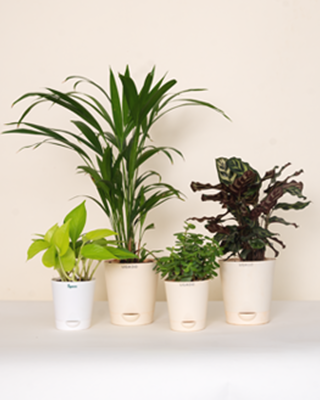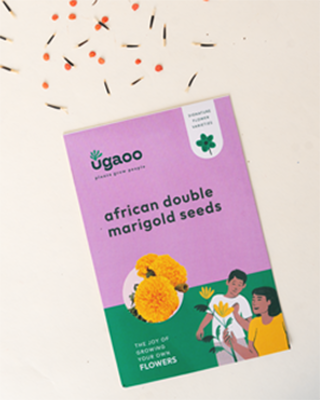You might think of World Environment Day and automatically think "pollution." However, that isn't the only issue that this day aims to tackle. With its 52-year history, the World Environment Day has been established as an essential part of driving the world to a better tomorrow in terms of pollution, individual impact on climate change, poverty issues, and even preservation of vital resources.
The world has changed in many more ways than imaginable. The rate of global warming has risen drastically, meaning the temperatures have gone up resulting in issues such as climate change, melting glaciers etc.
So, what are the different things that World Environment Day has focused on since its inception?
• Themes of the World Environment Day (1972-2024)
| Year | Focus for That Year |
| 1972 | Human Environment |
| 1973-74 | Only one Earth (conservation of the resources we have) |
| 1975 | Human Settlements |
| 1976 | Water: Vital Resource for Life |
| 1977 | Ozone Layer Environmental Concern; Lands Loss and Soil Degradation |
| 1978 | Development Without Destruction |
| 1979 | Only One Future for Our Children (for sustainability) |
| 1980 | Development Without Destruction |
| 1981 | Ground Water; Toxic Chemicals in Human Food Chains |
| 1982 | Ten Years After Stockholm (Renewal of Environmental Concerns) |
| 1983 | Managing and Disposing Hazardous Waste: Acid Rain and Energy |
| 1984 | Desertification |
| 1985 | Youth: Population and the Environment |
| 1986 | A Tree for Peace |
| 1987 | Environment and Shelter: More Than A Roof |
| 1988 | When People Put the Environment First, Development Will Last |
| 1989 | Global Warming |
| 1990 | Children and the Environment |
| 1991 | Climate Change. Need for Global Partnership |
| 1992 | Only One Earth, Care and Share |
| 1993 | Poverty and the Environment – Breaking the Vicious Circle |
| 1994 | One Earth One Family |
| 1995 | We the Peoples: United for the Global Environment |
| 1996 | Our Earth, Our Habitat, Our Home |
| 1997 | For Life on Earth |
| 1998 | For Life on Earth – Save Our Seas |
| 1999 | Our Earth – Our Future – Just Save It! |
| 2000 | The Environment Millennium - Time to Act |
| 2001 | Connect with the World Wide Web of Life |
| 2002 | Give Earth a Chance |
| 2003 | Water - Two Billion People Are Dying for It! |
| 2004 | Wanted! Seas and Oceans - Dead or Alive? |
| 2005 | Green Cities: Plan for the Planet! |
| 2006 | Deserts and Desertification – Don’t Desert Drylands! |
| 2007 | Melting Ice - a Hot Topic? |
| 2008 | Kick the Habit! Towards a Low Carbon Economy |
| 2009 | Your Planet Needs You: Unite to Combat Climate Change |
| 2010 | Many Species. One Planet. One Future |
| 2011 | Forests: Nature at Your Service |
| 2012 | Green Economy: Does it Include You? |
| 2013 | Think.Eat.Save. Reduce Your Foodprint |
| 2014 | Raise Your Voice, Not the Sea Level |
| 2015 | Seven Billion Dreams. One Planet. Consume with Care. |
| 2016 | Zero Tolerance for the Illegal Wildlife Trade |
| 2017 | Connecting People to Nature – in the city and on the land, from the poles to the equator |
| 2018 | Beat Plastic Pollution |
| 2019 | Beat Air Pollution |
| 2020 | Time for Nature |
| 2021 | Ecosystem Restoration |
| 2022 | Only One Earth |
| 2023 | Solutions to Plastic Pollution |
| 2024 | Land restoration, desertification and drought resilience |
These are the different issues that have been addressed during the different World Environment Days starting 1972. But what are the different things that you can do at an individual level to make a difference?
Also Read: A Brief History of World Environment Day
• 8 Ways You Can Make a Difference on World Environment Day
1. Walk, Cycle or Use Public Transportation

Carpooling or using public transport allows you to save on fuel and reduce the level of carbon emission produced by vehicles. In the long run, this substantially reduces the amount of vehicular pollution and also saves you from producing a higher carbon footprint.
2. Seek Out Local Produce for Food

When looking for fresh produce like fruits and vegetables to make use of in your daily life, try to find the best local produce for the same. This reduces the travel time and transportation requirements that come with the import and export of such items. Ultimately, this cuts down on fuel emissions and reduces carbon footprint.
3. Start Using Reusable Items

When eating, especially at home or even out, make sure you're saying no to one-time-use items like straws, plates, plastic spoons or forks etc. By doing so, you will be reducing the amount of waste production at an individual and global level.
Additionally, you can also carry your own cups to places as many cafes do allow you to use your own cups to prevent the usage of their one-time-use, disposable cups.
4. Switch off Lights and Electronic Devices

At an individual and personal level, this benefits not just you but also your environment. Initially, it will allow you to save money on your electricity bill. But you're painting a much bigger, much more beautiful picture by reducing your carbon footprint and taking a step toward a better tomorrow.
5. Conserve Water

The smallest thing with the biggest impact - water conservation. As one of the themes of World Environment Day say - "Water - Two Billion People Are Dying for It", this stands to be extremely true. With people dying of lack of access to clean drinking water, saving this resource is of growing importance. Simply turn off the tap while brushing, bathe with a bucket instead of a shower and notice the huge difference it will make in the long-run!
6. Compost to Reduce Organic Waste

Composting involves using a compost bin to create what we call "black gold" in the world of gardening. This requires you to segregate your wet and dry waste, and make use of useful wet waste such as vegetable and fruit peels, egg shells etc to add to the bin to create organic compost that will later fertilize your plants.
This reduces the amount of waste your produce at an individual level and connects greatly to the next thing you can do.
7. Grow a Garden

Growing a garden has a significant impact on the world's climate. This can create a cleaner, healthier space for everyone with better oxygen production and cleaner air to combat air pollution. Not only this, gardens also help eliminate noise pollution and reduce energy costs and soil erosion. This also helps minimize your carbon footprint and create a better living space for other living beings.
Buy Plants
8. Raise Awareness for Others
You can also contribute to raising awareness via public, social platforms. This will give you a chance to reach a larger audience and will give those who are unaware, a chance to know better and do better.














